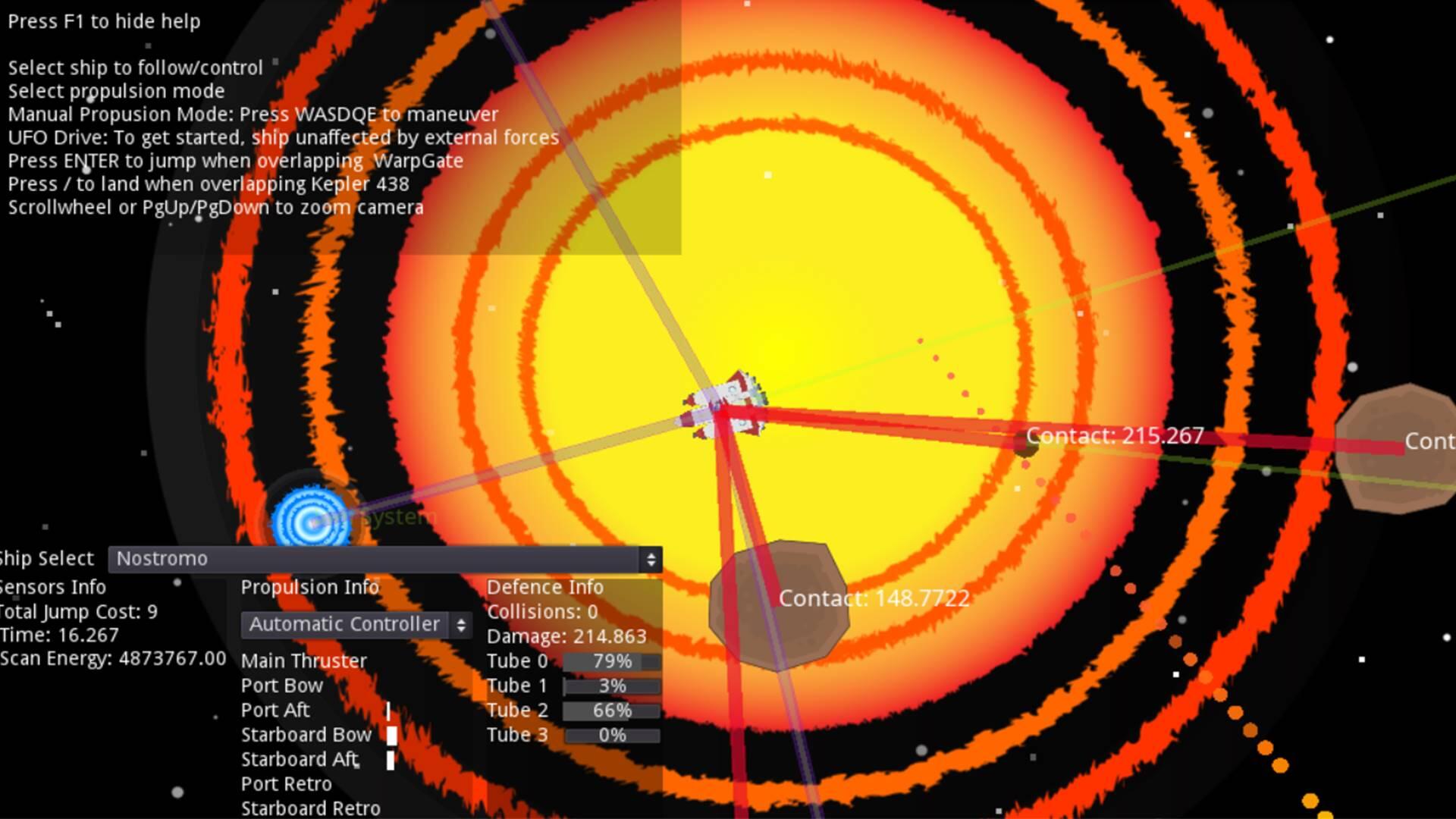
Navigating a new course during COVID-19
First-year engineering students collaborate remotely on an IDEAs Clinic spaceship challenge

First-year engineering students collaborate remotely on an IDEAs Clinic spaceship challenge
By Brian Caldwell Faculty of EngineeringMd. Abdul Chowdhury and his teammates never did get their virtual spaceship safely to Kepler-438b, an exoplanet situated hundreds of light years from Earth.
But all the hours they spent trying certainly weren’t wasted.
Whether they were able to conquer the difficult spaceship challenge or not, about 50 first-year engineering students at the University of Waterloo came away from a recent three-day event with valuable new technical skills and experience collaborating on complex problems in groups of up to 16 people.

A screen grab shows one of the IDEAs Clinic coding projects by engineering students in progress during the three-day activity.
“Teamwork is key to everything in industry, so it was great for us to get out of our comfort zones now to help prepare us for the long run,” said Chowdhury, 19.
That was exactly what organizers had in mind when they tweaked an existing hands-on activity to engage and involve electrical and computer engineering students during the COVID-19 pandemic.
Students worked remotely in pairs and sub-groups of four within teams of 16 to program an autonomous spaceship to plot a course, dodge or destroy asteroids and reach a planet in deep space.
Pulling it off - or even getting close - required students physically located in their home communities across Canada to use a shared coding tool called Git and collaborate via video conferencing platform Microsoft Teams.
“This is probably the largest team activity they will do in their university careers,” said engineering professor Derek Rayside. “It intentionally pushes students beyond what they know and it’s way too big for one person to do it alone, so it makes teamwork essential.”
The spaceship activity, which used an open-source video game engine called Godot, was primarily developed by Rayside and John Harris, a postdoctoral fellow who did his PhD in computer science in conjunction with the Games Institute at Waterloo.
It also benefited from input by undergraduate co-op students at the Engineering IDEAs Clinic, which offers a variety of experiential learning programs for students to design in groups.
Sanjeev Bedi, director of the clinic, said the spaceship challenge is a good example of the kind of hands-on lessons it provides even as most learning at Waterloo continues online.
“Don’t worry,” he reassured incoming students. “We might be teaching you online, but we’re still as innovative as we ever were. We’re going to deliver programs that are full of Waterloo character.”
Chris Rennick, engineering educational developer at the IDEAs clinic, said organizers also learned a few lessons from the spaceship project, including how to inject some of the informal mentoring students receive during in-person events.
“You can’t just drop in on a table, talk to students and see how things are going, but we have some ideas to improve it,” he said.
Participating students got encouragement along the way when Feridun Hamdullahpur, president and vice-chancellor of the University, Rick Culham, the former interim dean of Waterloo Engineering, and Vincent Gaudet, chair of electrical and computer engineering, all addressed them via video.
Although the remote approach wasn’t quite the same as it would have been pre-COVID, Chowdhury said it actually helped break down barriers and relieve social anxieties so his team could get down to work faster.
“In some ways, it was even better,” he said. “Overall, it was a great experience.”

Read more
Waterloo co-op student applies engineering and tech skills at Caivan to support purpose-built housing and build land-development expertise

Read more
How Doug Kavanagh’s software engineering degree laid the foundation for a thriving career in patient care

Read more
Redefining capstone learning by bringing students, faculty and community partners together to tackle real-world challenges
Read
Engineering stories
Visit
Waterloo Engineering home
Contact
Waterloo Engineering
The University of Waterloo acknowledges that much of our work takes place on the traditional territory of the Neutral, Anishinaabeg, and Haudenosaunee peoples. Our main campus is situated on the Haldimand Tract, the land granted to the Six Nations that includes six miles on each side of the Grand River. Our active work toward reconciliation takes place across our campuses through research, learning, teaching, and community building, and is co-ordinated within the Office of Indigenous Relations.